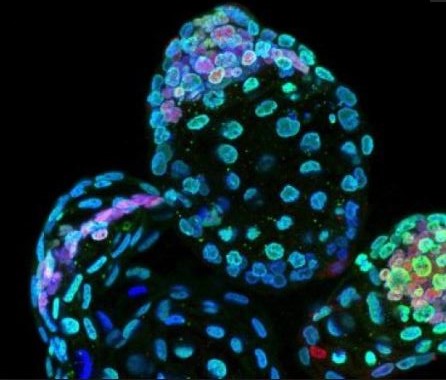Inhibition of mTOR induces a paused pluripotent state

Pausing embryonic stem cells can be induced directly in cultured ES cells and sustained for weeks without appreciable cell death or deviations from cell cycle distributions.
Cultured pluripotent stem cells are a cornerstone of regenerative medicine owing to their ability to give rise to all cell types of the body. Although pluripotent stem cells can be propagated indefinitely in vitro, pluripotency is paradoxically a transient state in vivo, lasting 2?3?days around the time of blastocyst implantation1. The exception to this rule is embryonic diapause, a reversible state of suspended development triggered by unfavourable conditions2. Diapause is a physiological reproductive strategy widely employed across the animal kingdom, including in mammals, but its regulation remains poorly understood. Here we report that the partial inhibition of mechanistic target of rapamycin (mTOR), a major nutrient sensor and promoter of growth3, induces reversible pausing of mouse blastocyst development and allows their prolonged culture ex vivo. Paused blastocysts remain pluripotent and competent?able to give rise to embryonic stem (ES) cells and live, fertile mice. We show that both naturally diapaused blastocysts in vivo and paused blastocysts ex vivo display pronounced reductions in mTOR activity, translation, histone modifications associated with gene activity and transcription. Pausing can be induced directly in cultured ES cells and sustained for weeks without appreciable cell death or deviations from cell cycle distributions. We show that paused ES cells display a remarkable global suppression of transcription, maintain a gene expression signature of diapaused blastocysts and remain pluripotent. These results uncover a new pluripotent stem cell state corresponding to the epiblast of the diapaused blastocyst and indicate that mTOR regulates developmental timing at the peri-implantation stage. Our findings have implications in the fields of assisted reproduction, regenerative medicine, cancer, metabolic disorders and ageing.


ارسال به دوستان